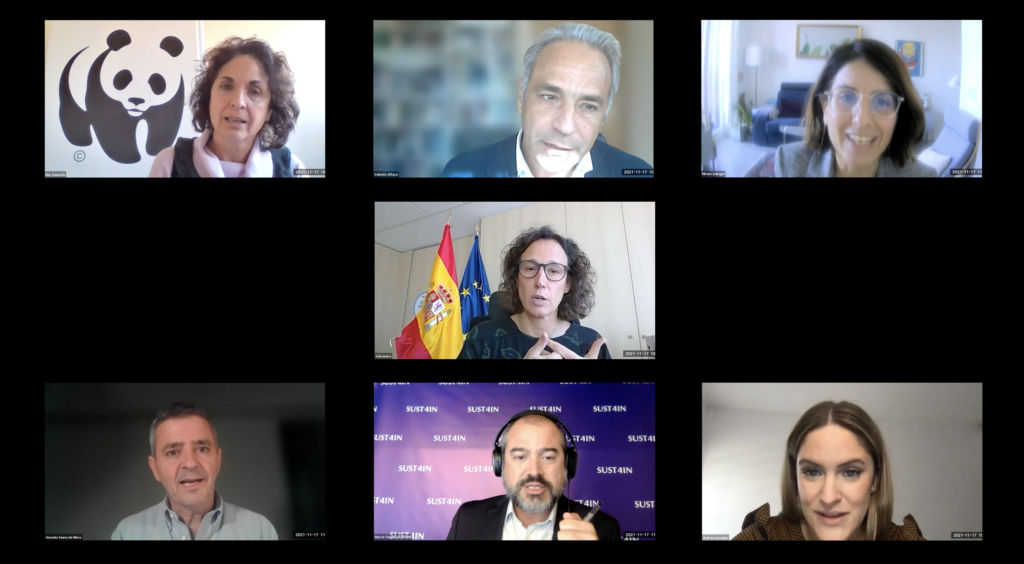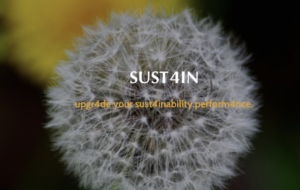COP26 Glasgow - The Day After: experts assess the results of COP26

- Participants agree that the Glasgow Climate Pact is insufficient but is a good agreement to build on.
- The 1.5ºC goal is still in effect, but it requires urgent action and commitment from institutions, companies, and citizens.
18 November 2021. Marcio Viegas, founder and CEO of SUST4IN, opened the event by commenting on the exceptional circumstances of the last COP. These included the ongoing pandemic and the climate emergency, what hasn’t been achieved, and the resulting achievements, especially the Glasgow Climate Pact.
Then, keynote speaker Valvanera Ulargui, general director of the Spanish Office for Climate Change in the Ministry for the Ecological Transition and the Demographic Challenge, reviewed the negotiations and the agreement reached on mitigation, adaptation, financing, and other aspects. She concluded, “The Glasgow Climate Pact translates into progress in the right direction: 1.5ºC is still possible, and urgent action is required in this decade.”
The event continued with a round table with representatives from different sectors. Gonzalo Saenz de Miera, Iberdrola’s director of climate change, clearly stated, “The Glasgow COP ended on Saturday, but COP27 began on Sunday. Governments, regions, cities, companies, NGOs, and citizens have to continue working responsibly and optimistically to move towards a sustainable future.” Next, Andrea González González, deputy director-general of Spainsif, highlighted the importance of pace and how the financial sector can multiply the speed of climate action, noting that “the lack of data is not an excuse not to act.” Mar Asunción Higueras, the head of WWF’s climate change program, asked for “Solidarity with young people and with vulnerable countries; we must act much more forcefully to curb emissions and thus prevent the worst impacts of climate change.” Finally, Valentin Alfaya, president of the Spanish Green Growth Group and director of quality and the environment at Ferrovial, said, “Talking is important, but we have to take action, and that’s where the private sector plays a fundamental role.”
Afterward, at the end of the event, Miriam Zaitegui, Spain’s program director at the European Climate Foundation, took on the European and international perspective. “We’re very concerned about the possibility of greenwashing. It is therefore quite necessary to strengthen mechanisms for accountability.”
Finally, Marcio Viegas closed the event by highlighting article 20 of the Glasgow Climate Pact. That article discusses reducing the use of coal, ending fossil fuel subsidies, energy efficiency, and the just transition. Viegas concluded, “Without a just transition, there is no transition, but it must also be ambitious and urgent.”
In the media
Related news

We are a network of expert professionals on sustainability.
SUST4IN apoya:



